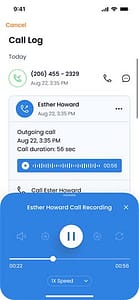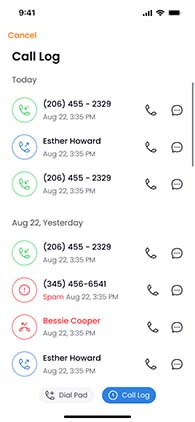How Proper Licensing Boosts Your Business and Online Presence
Imagine you’re setting up the website or your business, ready to attract customers from your local market. But there’s a catch: without the proper business licenses, your company might face legal issues and struggle to gain visibility on platforms like Google.
If you find the maze of local, city, and state business licensing requirements daunting, we’ll help guide you through the process of obtaining a business license. This will allow you to legally operate in your town and state and enhance your business’s online presence.
Understanding Business Licensing Requirements
A business license is an official business permit within a specific jurisdiction. While requirements vary, operating without one can lead to fines, penalties, or even the closure of your business. Licenses are often categorized by local (town or county), city, or state levels, and each has its own set of rules and procedures.
Local Licensing Requirements
Local licenses are typically required for businesses to operate within a particular county or municipality. Contact your town’s clerk’s office or county administration to determine your local requirements. They will inform you about the necessary steps, which generally include filling out an application, paying a fee, and awaiting approval.
City Licensing Requirements
A city business license is usually mandatory if your business operates within city limits. The process often involves providing detailed information about your business, including your location, the nature of your work, and the number of employees. Check with your city’s licensing department for specific guidelines.
State Licensing Requirements
State-level licenses are broader and may include registrations for tax purposes. For example, in some states, businesses must register with the state’s Department of Revenue for tax collection. Additionally, certain professions may require state-specific licenses, so it’s crucial to research the regulations relevant to your industry.
Additional Permits and Federal Requirements
Beyond local, city, and state licenses, your business might need federal permits, especially if you’re involved in activities regulated by the federal government. Also, consider other permits like health department approvals or building and zoning permits if your business requires modifications to a physical location.
Steps to Getting Licensed
To ensure you’re fully licensed, follow these steps:
- Identify the types of licenses you need by researching local, city, and state requirements.
- Gather all necessary documentation, such as proof of business name, address, and tax identification number.
- Complete the relevant application forms for each required license or permit. Be thorough and provide accurate information to avoid delays.
- Submit your applications along with any required fees. Keep copies of all submissions for your records.
- Follow up with the respective licensing authorities to check on the status of your applications.
- Once approved, display your licenses as required by law, often at your place of business where customers can see them.
- Keep track of expiration dates and renew your licenses and permits as needed to maintain compliance.
The Importance of Licensing for Online Presence and Google Compliance
Having the proper business licenses does more than keep you on the right side of the law; it also plays a pivotal role in establishing your online presence. Once you have your licenses, send them to Local Splash, and we will take care of everything.
Google, for instance, often requires proof of a valid business license for a company to be listed on Google Guaranteed and Google Business Profile, which enhances visibility in search results and maps. Contact the friendly team at Local Splash to help you navigate this process or offer helpful information.
Customers see a verified business as more trustworthy and may rank higher in search results, leading to increased traffic and potential sales.
Start Licensing Today!

By following the outlined steps and understanding the importance of each license type, you can protect your business from legal issues and enhance its digital footprint. Remember, a license does more than permit; it helps your business thrive in a competitive online marketplace.
Consider consulting with a legal advisor or business consultant for personalized assistance and expert advice on navigating complex licensing requirements. Don’t wait – secure your business license now and set your business up for success!
 Resources and Further Reading
Resources and Further Reading
For more detailed information on licensing requirements, visit:
- U.S. Small Business Administration (SBA) – Business Licenses and Permits
- Your state’s official government website
- IRS – Employer Identification Number (EIN)
Consider consulting with a legal advisor or business consultant specializing in business licensing to navigate the process with expert guidance.
Frequently Asked Questions
Q: Do all businesses need a license to operate?
A: Most businesses will need a license or permit to operate legally, but the requirements vary by location, industry, and other factors.
Q: How often do I need to renew my business license?
A: Renewal periods vary widely, from annually to every few years. Check the specific terms of your license for the exact renewal timeline and set reminders to renew before the expiration date to avoid any lapses in legality.
Q: Can operating without a license affect my online business?
A: Yes, operating without the necessary licenses can lead to penalties and negatively impact your online reputation and trustworthiness. Major online platforms may require proof of licensing to feature or promote your business.
Q: Where can I find the forms and information for applying for a business license?
A: Forms and application details are typically available on the websites of your local city or town, state, and federal government. You can also visit physical offices or contact them directly for assistance.
Q: What if my business operates in multiple locations or states?
A: You must comply with licensing requirements in each jurisdiction where your business is present. This compliance may mean applying for multiple licenses and managing them concurrently.
By reviewing these FAQs, you’ll better understand the licensing process and ensure that your business complies with all necessary regulations. Licensing safeguards your operations and strengthens your online presence, ultimately contributing to your success in the digital marketplace. Take charge of your business’s future today by securing the licenses you need to thrive.



 Resources and Further Reading
Resources and Further Reading For businesses focused on optimizing their online presence, comprehending the impact of call tracking on Search Engine Optimization (SEO) is vital. This section examines how including call tracking numbers in your digital marketing efforts can influence your SEO strategy:
For businesses focused on optimizing their online presence, comprehending the impact of call tracking on Search Engine Optimization (SEO) is vital. This section examines how including call tracking numbers in your digital marketing efforts can influence your SEO strategy:
